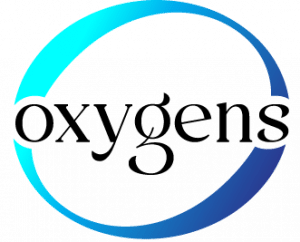Hyperbaric oxygen therapy for brain injury recovery holds promise in restoring neurological health following falls and accidents, which are common causes of brain injuries.
By providing increased oxygen supply to the brain and enhancing neuroprotective mechanisms, this therapy shows potential in mitigating the damaging effects of brain trauma, reducing disability, and improving outcomes.
Further research is needed to fully comprehend the long-term benefits, but early initiation of Hyperbaric Oxygen Therapy, in conjunction with other treatments, may significantly enhance brain injury recovery.
Injuries are pretty common and among the top ten causes of death globally. However, when it comes to brain injuries, such injuries mainly occur due to falls and accidents. Less than 1% of adults may experience brain injuries of various severity, from mild concussions to open or penetrating brain injuries.
Severe brain injuries are characterized by low survivability, and most of them lead to prolonged disability1.
One of the reasons why brain injuries may benefit from hyperbaric oxygen (HBO) therapy is that the brain is a very energy-hungry organ. It forms less than 2% of the body mass and still consumes about 20% of its oxygen supply2.
It means that worsening of brain health or neurological deficit post-brain trauma occurs considerably due to ischemic injury secondary to the physical trauma. Hence, early initiation of HBO therapy and other treatments may significantly benefit the condition.
Hyperbaric oxygen therapy for brain injury
Although HBO treatment may not help in all cases, it may be lifesaving in some instances. For example, it may help significantly reduce ischemic injury by boosting oxygen perfusion to the deprived brain areas. However, that is just one of how it helps.
Studies show that HBO helps in brain injury in many ways. It may help lower intracranial pressure and enhance various neuroprotective mechanisms. Overall, timely initiation of HBO is associated with a lower number of deaths and better neurobehavioral recovery in brain injury patients. It further seems to enhance cellular metabolism, reduce programmed death of brain cells (anti-apoptotic), and reduce inflammation3.
Of course, needless to say, that brain injury is a severe event, and HBO must be used as adjuvant therapy and not as a first-line treatment. Fortunately, high-quality research into the subject is improving, and now some sound evidence supports its use in brain injury patients.
Thus, one of the most extensive systemic reviews published by the Cochrane Library in 2012 concluded that HBO therapy is associated with better Glasgow Outcomes Scale (GOS) and Glasgow Coma Scale (GCS) scores. However, it also warns that studies show that HBO only has mild to moderate benefits. It confirms the early findings that HBO is only good for use as an adjuvant therapy1.
When it comes to the studies, systemic reviews are the most reliable studies as they analyse data from multiple clinical studies. One of the more recent systemic reviews published in 2016 also concluded that HBO is beneficial for traumatic brain injury (TBI) patients. This study also confirmed improvements in GOS and GCS scores in brain trauma patients after HBO treatment.
Here it is vital to understand that most studies have explored the role of HBO therapy in acute traumatic brain therapy. However, there is still a need to understand the role of HBO in rehabilitating such patients. It is quite likely that HBO may also reduce the neurological deficit in the long run.
To sum up, HBO is one of the effective supportive treatments for brain injury. It may result in better clinical outcomes if initiated promptly along with other treatments. It is also quite likely to reduce long-term disability caused by brain injury. However, there is still a need for more studies to fully understand the role of hyperbaric oxygen therapy for brain injury recovery in the long-term management of patients.
Ask a Question, request a Brochure and/or a Quotation:
If you have any questions or would like to know further details of our product range, availability, and pricing for hire or purchase please use the button below.
References
1. Bennett MH, Trytko B, Jonker B. Hyperbaric oxygen therapy for the adjunctive treatment of traumatic brain injury. Cochrane Database of Systematic Reviews. 2012;(12). doi:10.1002/14651858.CD004609.pub3
2. Rink C, Khanna S. Significance of Brain Tissue Oxygenation and the Arachidonic Acid Cascade in Stroke. Antioxid Redox Signal. 2011;14(10):1889-1903. doi:10.1089/ars.2010.3474
3. Huang L, Obenaus A. Hyperbaric oxygen therapy for traumatic brain injury. Medical Gas Research. 2011;1(1):21. doi:10.1186/2045-9912-1-21

